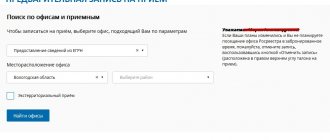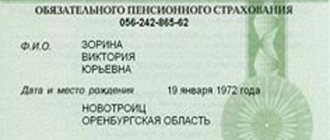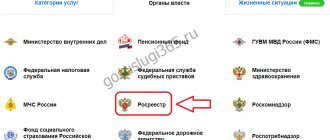What is this
Explanation EIRC (or ERC in certain regions) is a unified information and settlement center. An organization created with the aim of providing the highest possible level of settlement and information services to residents and organizations serving them (MCs and HOAs).
The EIRC system is a unified procedure for accounting, accrual, accounting and further redistribution of payments for housing and communal services to their suppliers.
The main task is to calculate the total amount of payments for housing and communal services for the population in order to minimize the “supplier-consumer” chain.
Previously, housing and utility payments were accumulated in the accounts of homeowners' associations or management companies, which acted as intermediaries between residents and resource-supplying organizations. With the introduction of the EIRC system, service organizations turned into suppliers. As a result, they became clients on a par with housing and communal services suppliers. Now all accruals and settlements for payments are carried out by a single information and settlement center. Then it redirects the collected funds to management and resource supply organizations.
Thus, the EIRC does not enter into direct contracts with consumers, but charges for housing and communal services. This happens on the basis of agreements concluded with suppliers, management companies and resource supply organizations.
In addition, the EIRC is implementing a “split” payment scheme. How does this happen? The organization gives residents an equal right to both pay the entire receipt and make a payment only for a specific service.
It also provides for refusal to pay others (for example, in the case of provision of services of inadequate quality). In this case, only the company whose services were provided in full and of appropriate quality receives funds.
At the same time, the EIRC does not write off debts for payment of payments for housing and communal services. So, from a legal point of view, it is not a party to the contract with the consumer. However, it has the right to send appropriate notifications to debtors on behalf of the supplier.
EIRC - convenience or another “scam” from the authorities?
About six months ago, residents of Sevastopol began receiving new payments. The A4 sheets told the townspeople that from now on the city has a state united information and settlement center (UICC), designed to make life as easy as possible for citizens in paying for utilities and to ensure the transparency of charges.
However, the entry of the EIRC into the market was immediately marked by a scandal. Law-abiding payers began to receive bills with huge debts. The townspeople, mostly elderly and low-income, rushed to the EIRC branches for a recalculation - and were met with rudeness and sweet-voiced admonitions: “The system is not yet debugged, there is no single base. You pay for now, and we will recalculate next month.”
But excuse me, on what basis should we lend to an organization that is parasitic on our payments?
Why parasitic? Because utility service providers who have already joined the settlements or are just about to do so will charge the EIRC 3.5% of the accrued payments. Accrued and not paid for the accounts of the new GUPS. That is, those people who continue to pay directly to the cash registers of the water utility, city gas or management company are already sharing their hard-earned money with EIRC employees, who are supposedly debugging the work of such a “necessary” single database for the city.
“This is very convenient,” says the head of Housing Supervision Galina Chagina, who is not directly related to the EIRC, but works in the housing and communal services sector and has encountered a similar system on the mainland. — You receive a single receipt that you can pay anywhere: at a bank, at the post office or directly from service providers — as long as there is such an opportunity in Sevastopol. But you will pay, for example, the entire amount to the water utility, and they themselves split the payments into a single database and send them to service providers. It turns out that at the water utility you paid for electricity, gas, and water.”
But “Notes” somehow understands convenience differently. Convenient is when a person has a choice: to enter into an agreement with the EIRC for the formation of a single account and pay a percentage for it, or to continue to pay independently at the cash desks of utility providers. It has become commercially attractive, there should be no place for “errors” and “debugs” that we see now. Moreover, for some reason the EIRC “makes mistakes” more often in the direction of increasing the payment amount.
The residents of Sevastopol quickly realized that no one obliges them to pay the accrued amount - they did not personally enter into agreements with the EIRC. And they began to correct the amounts in the bills. What is the EIRC for? I wonder on what basis? - sent out an official order to all authorities accepting payments that corrections in the payment document are not allowed.
That is, from now on what is printed by a soulless machine is the ultimate truth? And if a person receives a payment with an amount two or three times higher than the monthly payment, he is obliged to pay it in full, but whether he has enough money for it or not is the tenth thing?
Why can’t we choose who, when and how much to pay, if in fact there are no debts for utility services? And even if there is?
There is an opinion that a single receipt, which cannot be amended, will encourage citizens not to accumulate debts. They say that many pay only for what they “can cut off” - gas, electricity, water. And it takes months to pay for the manager’s services. But is it possible to do it differently in the conditions of our country? Or pensioners are obliged to die, but satisfy the insatiable appetites of the housing and communal services sector, which now includes 3.5% for the maintenance of the EIRC.
And in the EIRC receipts there are some strange things with charges for water and heating. For example, I received a receipt with “minuses” - the “debt” accrued in previous months was actually recalculated. But the water is calculated according to the norm - 9.5 cubic meters. It turns out that for the calculations to be correct, you need to submit your readings to the EIRC - on the website, by e-mail, by phone, and even in boxes (!!!) installed in subscriber service centers. But why? There are no contracts, and who and on what basis transferred my personal data to the EIRC is completely unknown. I did not give my consent.
In addition, the payment came with a note: “As of December 31, in your house in apartments 1, 3, 10, 25, 26 .... the debt for payment of housing and communal services is 3 or more months.” What's it like? They themselves counted the debts and published the list of debtors themselves.
And the EIRC is also going to take over the functions of passport officers for management companies. The list of services includes: preparation of documents, certificates, extracts for the population; collection and transfer to registration authorities of documents for registration of citizens. Do you think it's free?
Last September, I had to get confused with the preparation of some documents in the city of Sochi. To obtain a certificate of the number of people registered in my grandmother’s apartment—known as a “Family Composition Certificate”—I went to the local management company. The same walls, the same passport officer with a pretentious hairstyle and catchy makeup, the same cards in antediluvian wooden boxes - the process is no different from the similar one in Sevastopol. In addition to the cost of the service: they charged me 80 rubles for issuing the certificate. Guess which organization was listed as the recipient of the payment? That's right, EIRC!
And it doesn’t matter whether you apply for a subsidy or child benefit, receive maternity capital or enter into an inheritance - for what was free throughout the post-Soviet history of our peninsula, you will now have to pay.
Previously, at most you could have been scolded for debts and refused to issue a certificate, which, in general, was also unlawful. Now everything is just for money.
The situation with paid certificates has been worrying citizens throughout Russia for several years now. At the same time, officials explain the situation by the need to pay wages to passport officers and the costs of storing personal data in a single database. It turns out that previously we were given certificates out of pure altruism, but now we have to pay for the safety of the contents of wooden boxes with registration cards?
All of Russia is tightly connected to the EIRC system. In St. Petersburg and Moscow, it has long been basically impossible to pay for housing and communal services without a commission. And at the same time, throughout Russia, people are outraged by the massive attribution of false debts.
They continue to assure us that such GUPS are being introduced solely for our own good: they say, it will be possible to save money on the salaries of economists in the settlement departments of specific service providers - their work will be done by an electronic database. But so far, practice tells a different story: economists have remained in their jobs, and to pacify pensioners who have gone mad with despair, the EIRC is opening consultation centers. With eternal queues.
If the EIRC is beneficial to consumers, then we demand transparent and public explanations of what this system will allow us to save on. Tell us at least how much it costs us to maintain the EIRC: 3.5% citywide - how much?
But such reports, of course, are not included in the plans of officials. Just as there are no explanations to what “market” indicators we raised tariffs throughout the nineties and early 2000s, and what the essence of the “economic justification” for these prices is now.
In some regions of the Russian Federation, the work of the EIRC was recognized as unsatisfactory, and the project itself was considered a failure. There are too many complaints from the population, and service providers are breaking contracts with the centers. Last year, the EIRC was going to be closed in Astrakhan, but it turned out that the payment infrastructure of the city’s housing and communal services had already collapsed, and the need to pay for services separately was causing people to panic no less than it had in the sphere of paying for housing and communal services in Sevastopol all these almost two “transition” years .
Activities of the EIRC
For the population, the center operates on the “One Window” principle. This allows residents, when contacting a representative of the organization, not only to pay for housing and communal services, but also:
- To get a consultation.
- Certificate of absence of debt.
- Submit instrument readings.
The main functional responsibilities include:
- Accept payments for services of any suppliers. Electricity, water supply and sanitation, heat supply, maintenance of common property, gas, cable television, Internet, telephone, etc.
- Distribution of payment documents (receipts).
- Providing wide payment options. Including through suppliers' cash points, banks, ATMs, post offices, the Internet, etc.
- Automation and unification of work, transfer of functioning to online mode.
- Centralized charging for housing and communal services according to a single principle.
- Reception of the population on issues related to payments and payments for housing and communal services.
- Informing owners on the procedure for calculating costs for services provided, etc.
Extract from the house register through the State Services portal
Working with the government services portal State Services requires a personal account of an individual and additional verification. An extended profile, which opens up the opportunity to draw up a document, can only be obtained by personal application that supports the EPGU (for example, the Pension Fund of the Russian Federation or the MFC). After the usual identification confirmation, the client receives access to all services of the portal. This is not possible during initial registration.
The need to obtain an extract and its types
This document can be of two types: archival and regular. The first option is necessary to maintain the history of the premises - its owners, registered persons, and any changes in these parameters. Another option is requested to clarify information for a specific or current period. This information is needed, for example, for realtors who verify that there are no owners in the property being sold.
That's all. You need to wait for the notification that will appear in your personal account. When processing a document online, the production time is 1-3 days. If an extended document is drawn up, the period increases to 3-7 days.
The archived statement (also called extended) has some differences from the ordinary one. In particular, this document provides detailed information about all persons who have ever lived at the specified address. The current residence addresses of these people are also given. In other words, such a document allows you to find out whether there are any applicants for ownership of this house or apartment. It is important to understand that the right to own living space in the future is reserved for minors convicted of crimes, on business trips for a long time, in the army or undergoing treatment in a hospital setting.
Where can I get the document?
Step-by-step instructions for obtaining an extract from State Services begin with registration on the portal. A verified account is also required. It is important to understand that you can order a document in person, and the same rights are granted to your legal representative. Registration of the document is free for each person, this is done in accordance with the following algorithm:
ATTENTION! The applicant does not have to be the owner of the real estate; the extract can be obtained by his official representative. In the block you will need to indicate who the applicant is, as well as his data, including those in the passport, as well as a contact phone number and email.
- Service catalog
- Authorities
- Rosreestr
We recommend reading: State Duty Form for Registration of Property Rights in the Moscow Region
Obtaining an extract from the Unified State Register of Real Estate via the Rosreestr website
Accordingly, the certificate itself is necessary for any transactions where real estate is the subject of a transaction: purchase and sale, inheritance, pledge, and so on. An extract from the owner is required at the time of concluding the contract to ensure transparency of the transaction. The certificate is valid for 1 month from the date of receipt.
The EZhD is not mandatory, it is designed to simplify the procedure for collecting the necessary documentation, replacing 13 different documents. When providing it, none of the authorities has the right to additionally require a certificate confirming the information contained in the EZhD. Also among the advantages of a housing document are:
Get a copy of your financial personal account through government services in 2020
FLS is a unique number that gives access to the main information about the apartment: the statement of financial and personal account indicates almost everything, from the type of coverings in the house and the year it was built to the number of people registered in the apartment.
What to do in case of refusal
Finding out the payer’s LP number is not a problem, since it is listed in the receipt for payment of housing and communal services. If you look carefully, numbers will be printed opposite the “Financial-personal account” section, which will be its number.
- identification document, it is provided for review and returned to the applicant,
- a written application (in free form indicating: the type of document required, the purpose of obtaining it, personal and passport data),
- Additional documents may be required, for example, a court decision on recognition as a dependent.
The validity period of the EZhD is 30 days. When applying through the portal on the website of the Mayor of Moscow, the document arrives in your personal account on the website in electronic form. How to get it from the MFC: apply with the necessary documents to the “one window” service. The same forms will be required when choosing other methods.
We recommend reading: Medvedev announces the implementation of all social programs and benefits for labor veterans in 2020 and 2020?
Terms and procedure for providing services
- owners, their representatives with confirmation of authority (legal representative - certificate of birth, adoption, establishment of guardianship, representative by power of attorney - notarized power of attorney),
- registered at the place of residence or temporary stay.
In pursuance of the norms of the current legislation of the Russian Federation, as well as in order to improve the system for calculating payments for housing and communal services and reference and information capabilities for consumers and enterprises in the housing and communal services sector, the Limited Liability Company "Unified Cash Settlement) in November 2020 transferred the database of personal accounts to a new software, in connection with which in December 2020, a single payment document (UPD) of a new sample will be delivered to all residents of the city of Tver.
The most common questions asked by residents when contacting the EIRC
Payment must be made in two EPDs. I installed water meters on September 5th. Why in my EPD the calculation for water is not based on my data, which I gave at the end of the month, but is summed up according to DPU and KPU? According to clause 5.3.1 of the Procedure for calculating payments for utilities (hot water, cold water and sanitation) in residential premises according to the readings of common house and apartment metering devices, approved by the First Deputy Mayor of Moscow P.N. Aksenov. 07/26/2005, payment documents are generated in the following order: for utilities for which payments are made according to standards and/or within the social norm (not according to metering devices), charges for the current month are included.
Unified housing document
- The original civil passport, which is submitted to the registrar and returned to him after entering the data.
- Insurance certificate of compulsory pension insurance, also in original form. This is returned upon completion of the preparation procedure.
- For representatives of citizens acting in their interests - a notarized trust order in the form of an original, which is not returned upon completion of the procedure.
- If a proxy acts, then the passport of the copyright holder is replaced by the passport of the attorney.
We recommend reading: How to write an explanatory letter to the tax office about force majeure




